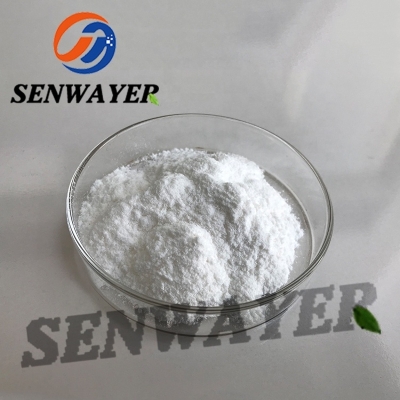-
Categories
-
Pharmaceutical Intermediates
-
Active Pharmaceutical Ingredients
-
Food Additives
- Industrial Coatings
- Agrochemicals
- Dyes and Pigments
- Surfactant
- Flavors and Fragrances
- Chemical Reagents
- Catalyst and Auxiliary
- Natural Products
- Inorganic Chemistry
-
Organic Chemistry
-
Biochemical Engineering
- Analytical Chemistry
- Cosmetic Ingredient
-
Pharmaceutical Intermediates
Promotion
ECHEMI Mall
Wholesale
Weekly Price
Exhibition
News
-
Trade Service
Recently, Jing Ze Biological Pharmaceutical Co.
, Ltd.
a class of drugs "toluene sulfonic acid Dona Fini sheet" listing application (related to admissibility is CXHS2000010) in the state NMPA changed to "the approval", it is expected to soon be formally approved , First-line treatment of advanced (inoperable or metastatic) hepatocellular carcinoma
.
Donafinil is a multi-target small molecule anti-tumor drug independently developed by Zejing Pharmaceuticals
.
Preclinical pharmacological studies have confirmed that Donafinil can not only inhibit the activity of VEGFR, PDGFR and other receptor tyrosine kinases, but also directly inhibit various Raf kinases, and inhibit the downstream Raf/MEK/ERK signal transduction pathway , Inhibit the proliferation of tumor cells and the formation of tumor blood vessels, and exert the anti-tumor effect of multiple inhibition and multi-target blocking
The marketing application of Donafenib for the first-line treatment of advanced hepatocytes is based on the results of Phase II/III clinical studies (trial code ZGDH3)
.
The study is an open, randomized, parallel-controlled, multi-center study aimed at exploring the effectiveness and safety of Donafenib tablets in the first-line treatment of patients with advanced hepatocellular carcinoma
Donafenib is the first in the world in the treatment of advanced hepatocellular carcinoma in the treatment of advanced hepatocellular carcinoma in the first large-scale phase III clinical trial with a single-drug head-to-head comparison.
The survival benefit and safety are superior to those of sorafenib.
New tumor drugs
.
Its approval in the future is of great significance to patients with advanced hepatocellular carcinoma
Multiple first-line therapies for hepatocellular carcinoma were approved and submitted for production
Hepatocellular carcinoma (HCC) is one of the main causes of cancer deaths worldwide.
According to the latest global cancer burden data released by the International Agency for Research on Cancer (IARC) of the World Health Organization in 2020, there will be 910,000 new global hepatocellular carcinomas in 2020.
The incidence rate ranks sixth, the number of deaths in 2020 will reach 830,000, and the mortality rate ranks third
.
China is a country with a high incidence of hepatocellular carcinoma.
Patients with hepatocellular carcinoma are often in the middle and advanced stages when they are first diagnosed.
They lose the opportunity of surgery, the treatment is difficult, the prognosis is poor, and the survival period is short
.
Since Sorafenib was approved by the FDA for the first-line treatment of hepatocellular carcinoma in 2007, with the development of targeted drugs and immunotherapy in recent years, the first-line treatment of hepatocellular carcinoma has ushered in a variety of drugs
► In August 2018, lenvatinib was approved by the FDA as the first-line treatment for unresectable hepatocellular carcinoma
.
► In May 2020, the PD-L1 immunosuppressant Tecentriq® (English name: Tecentriq®, generic name: Atelizumab (Tecentriq, PD-L1 inhibitor) + Bevacizumab (Avastin, VEGF inhibitors) are approved by the FDA for the treatment of unresectable or metastatic hepatocellular carcinoma
.
In China, the above three therapies have been approved by NMPA as first-line treatments for hepatocellular carcinoma
.
In addition, Donafinil, Sintilizumab combined with Bevacizumab (Dyotong), and Acoladine have also submitted domestic applications for the first-line treatment of hepatocellular carcinoma







